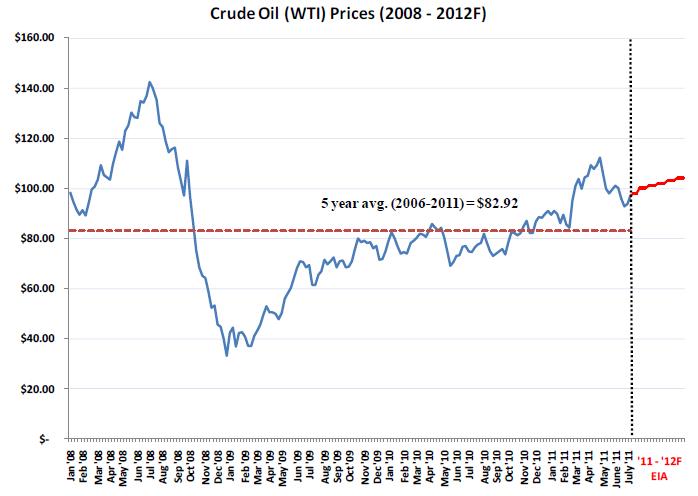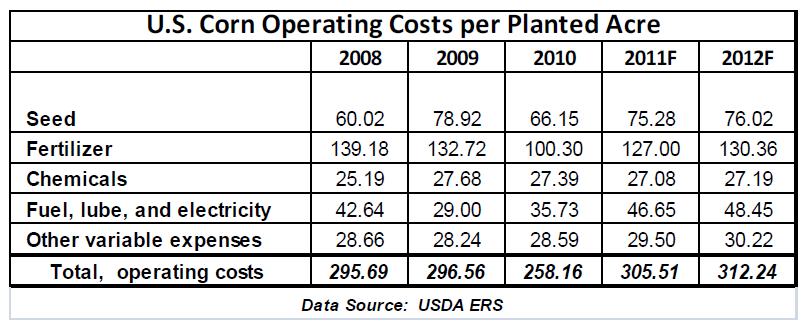Higher Energy Prices Hitting Farmers’ Bottom Line
By National Farm Bureau Federation
WASHINGTON, D.C., July 26, 2011 – While farmers are benefiting from positive commodity prices, rising production costs remain a concern, according to economists with the American Farm Bureau Federation.
“These are encouraging times for the U.S. farm economy,” said AFBF Chief Economist Bob Young. “Higher prices for corn, cotton, wheat and soybeans are helping farmers, but higher energy prices are impacting profit margins. It’s important to remember that farming is still a very capital intensive occupation and that high input costs affect the bottom line, even in good times.”
AFBF economist Matt Erickson outlined the impact of high energy prices on farmers in a new white paper “Cost-of-Production Report: the Rising Costs of Inputs.” High oil prices will drive up the cost of production of corn, soybeans, wheat, rice and cotton in 2011, according to Erickson. Higher fertilizer prices are also impacting net farm income.
“The effects of higher oil prices are reducing profits to the agricultural sector,” Erickson said. “From seed to fertilizer, each commodity is projected to experience higher yearly production costs from 2010 to 2011.”
USDA is forecasting 2011 total operating costs to climb 18 percent for corn, 13 percent for soybeans, 18 percent for wheat, 15 percent for rice and 9 percent for cotton, compared to last year. Erickson said a major factor impacting these higher production costs are higher energy prices and higher fertilizer prices.
“One reason fertilizer prices have increased is demand for fertilizer given the current tight supply for grain commodities, primarily corn,” Erickson said. “In the current situation of tight supplies for grain, fertilizer is a necessity as acreage production in the U.S. is at a max. Similarly, high grain prices increase the demand for fertilizer in international markets.”
High diesel prices hit farmers hard at planting because farm tractors run on the fuel and it will also impact the bottom line at harvest because combines and cotton pickers also run on diesel, according to Erickson.
“With diesel a byproduct of crude oil, farm diesel prices are expected to continue to increase with projections of increased crude oil prices from the Energy Information Administration,” Erickson said.
AFBF’s new white paper on the cost of agricultural production can be found at: http://bit.ly/pNlp7R.
Disclaimer: Articles featured on Oregon Report are the creation, responsibility and opinion of the authoring individual or organization which is featured at the top of every article.



